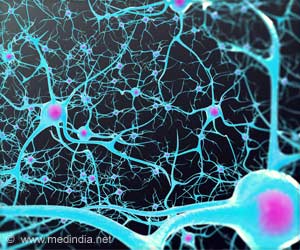Elevated levels of a specific blood enzyme are found to be an early warning sign of Alzheimer’s disease as per a study at the University of California San Diego, published in Cell Metabolism.
The team had earlier found that there were a consistently higher trends of gene expression coding for PHGDH (a key enzyme in the production of an amino acid, serine) in adults with different stages of Alzheimer’s disease.
‘Higher levels of an enzyme called PHGDH in the blood are found to be an early warning sign of Alzheimers disease among older adults, even before cognitive symptoms ensue.’
Blood Biomarker for Alzheimer’s disease
Hence, increased PHGDH expression also indicates an increased rate of serine production in the brain. These findings prompt a warning towards brain-boosting supplements that contain the serine as a remedy for Alzheimer’s disease, signifying that taking additional serine may not be beneficial.
The new findings from the blood samples of older adults, clinical assessment vis the Dementia Rating Scale, and the post-mortem human brains reinforced the earlier findings, deeming PHGDH as a potential blood biomarker for Alzheimer’s disease.
“It’s exciting that our previous discovery of a blood biomarker is now corroborated with brain data. Now we have strong evidence that the changes we see in human blood are directly correlated to changes in the brain in Alzheimer’s disease.” “The fact that this gene’s expression level directly correlates with both a person’s cognitive ability and disease pathology is remarkable. Being able to quantify both of these complex metrics with a single molecular measurement could potentially make diagnosis and monitoring progression of Alzheimer’s disease much simpler,” says lead researcher, Sheng Zhong, at the UC San Diego.
Source: Medindia



